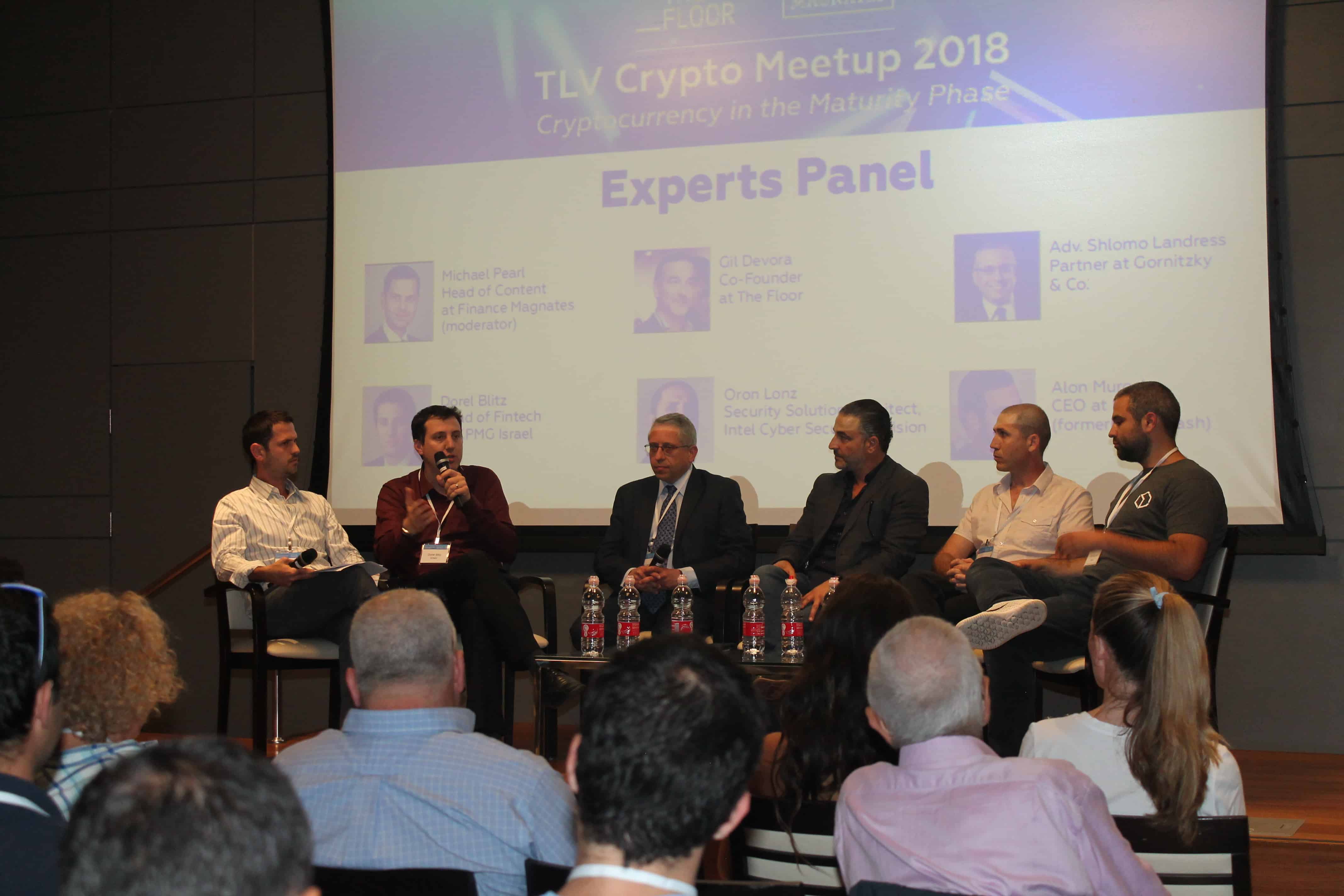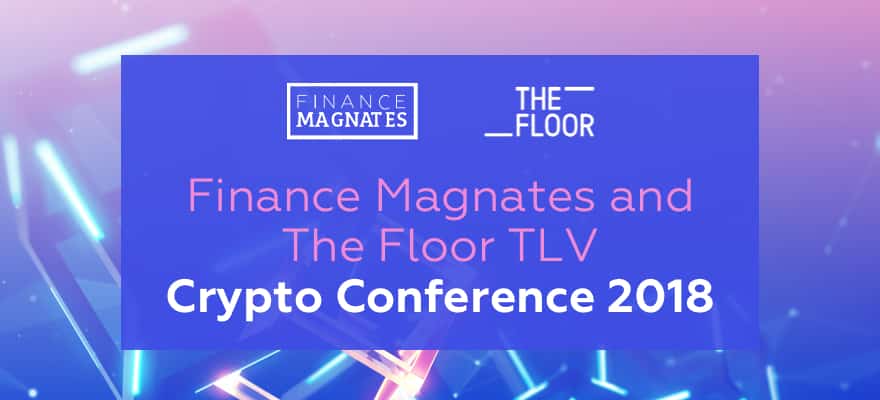This evening The Floor in Tel Aviv hosted a cryptocurrency-themed event. The event featured a panel discussion between a number of industry experts and a keynote speech delivered by Yonni Assia of eToro.
Panel discussion: "Cryptocurrency in the maturity phase - what's next for crypto trading and ICOs?"
The panel featured: Shlomo Landress, a partner at law firm Gornitzky & Co; Dorel Blitz, Head of Fintech at KPMG Israel; Oron Lonz, Security Solution Architect at Intel Cyber Security Division; Gil Devora; and Alon Muroch, CEO of Blox.io. It was chaired by Michael Pearl of Finance Magnates.

The premise of the panel was looking at cryptocurrency in the maturity phase, that is, now that it has passed its adolescence. The panelists were asked a range of questions by the moderator and the audience, covering the subjects of Regulation , regulation in Israel specifically, whether ICOs will replace traditional investment, and more generally how the Blockchain industry is likely to develop over the next few years.
After a lively panel, here is a selection of comments from the participants:
Dorel Blitz
"I am a true believer in trust. Banks sell trust, not money, and because there are issues with blockchain. Swift is at the moment working on a worldwide blockchain implementation, and only when large companies like this start using blockchain will we gain a sufficient amount of trust."
"I had a meeting with the CTO of the largest bank in Israel and I was amazed to see how these people are building use cases around blockchain technology. I met the global president of Blackhawk, the largest asset management company in the world, and they are looking at blockchain not just in terms of cryptocurrency as an asset class they can play with, but at blockchain technology on a global basis."
Shlomo Landress
"You may think that regulation is a terrible thing that is going to stifle innovation, but I beg to differ. lack of regulation is a bad thing because the stigma of fraud and hacks is bad."
"Many authorities came up with a whole load of regulations that came from a good place but ended up not making a lot of sense. I think Israel is not at the front of this in any way - we are behind. There is a concern as to whether Israel will be able to maintain its place in terms of being a leader in startups if the regulations don't catch up."
"We are seeing a lot of use cases coming from the healthcare space. The Israeli government just confirmed a one billion dollar fund for healthcare services, and they are looking at using blockchain technology exactly for that. I think that these kinds of investments will fuel the industry, and there are all kinds of entrepreneurs that want a new place to invest their money, and I think that blockchain after 5 - 7 years of playing with use cases and 2018-2020 will see validations as it scales up."
"Self-regulation can point regulators to what can actually work. The industry itself can influence the regulation process, and I think that they are thirsty for involvement. Cryptocurrency no longer means that the rules don't apply to you anymore."
Gil Devora
"I believe that once ICOs are regulated, it will be a great thing. Its a shame to see that companies are taking their money elsewhere because of Israeli regulation, I hope they get on with it."
"It's not the next step, it's another step. I think that an ICO is a great way of making capital but I don't think that it will replace VCs. A lot of companies look for smart investors, and sometimes companies want to progress in a traditional way, benefiting from the advice of experienced investors and so on."
"In investments, technological developments change behavior but the target is always the same."
Alon Muroch
"Tax is very different to regulations when it comes to securities. The ITA is the fastest moving regulator in the world."
"In 5 to 10 years we won't see any equity investments anymore. Tokens are just too good to pass up."
"Up until the end of 2016, most of the talk in the industry was around infrastructure. 2018-2020 will be about consumer-facing products. You need to develop the infrastructure to bring people on board."
"Talking about trust, blockchain is trustless - ICOs are so far away from Bitcoin and Ethereum, which are completely accepted. These are the Microsoft and Google of the next 30 years."


















